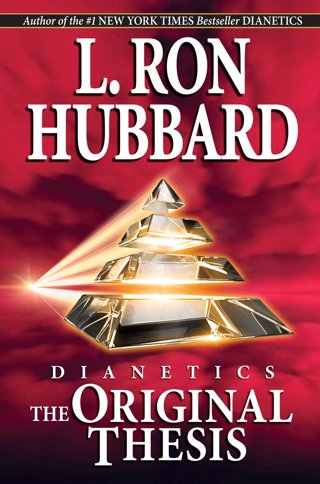Indicators on Dianetics You Should Know
Wiki Article
The Of Dianetics
Table of ContentsDianetics Things To Know Before You BuyOur Dianetics StatementsThe Basic Principles Of Dianetics Some Of Dianetics
I could not ever not desire to receive anything that comes to mind for you- if it was otherwise, I would not be sitting right here with you, doing this. I not just might never have an issue, or otherwise wish to listen to something that enters your mind for you, yet I'm totally anxious to understand every concept, every thought, every picture or sensation that emerges or materializes for you- do not ever assume or else, and if somehow you do, please just allow me recognize! Often, you might have a thought, and image, idea or occurrence turn up that does not seem to address the question, or connect to it, yet nevertheless, constantly do inform me about it, and as we proceed, the importance will emerge for you.This is integral in the basis of processing, and the topic of this conversation: the standard functions of the therapist and the customer: The basic function of the therapist is, in contrast to "common training", not to regulate, which means to apply and/or inhibit, yet to instead work from the basis of EMPOWERING THE CUSTOMER.

The Best Strategy To Use For Dianetics
John Mcmasters revealed this standard fact wonderfully well in one of his lectures on Power handling, in which he describes how he was asked what this "unique flair" was that he had for offering such terrific sessions; he had to believe regarding that for a minute, and detected that it was what he had not been doing, along with what he was doing: he had not been evaluating, judging, computing, or actually, generating any thoughts, not to mention spoken expressions, after giving the command and while waiting for the PC to complete their solution to their satisfaction; he was, simply and only, existing with the PC, and totally interested.The function of the counselor, demonstrated; that was his "special flair". I have had my own experience which educated me this well, really at an early stage in the game. In 1982, having actually just recently finished my training and internship on New Era Dianetics, I was running this on a COMPUTER, and there was a factor in the session where (being a little bit damp behind the ears not yet having numerous hours under my belt read more as a professional auditor) the PC seemed to be "taking also lengthy" to express anything verbally after I provided him a command.
This key became the most important payment that John ever before made to the subject of treatment or auditing (Dianetics). In my modest viewpoint, it is the best payment that anybody has ever before made to these subjectsthe application is completely non-judgemental, non-evaluative, and lacking any recommendation, advice or opinion.no preconditioned schedule for individuals, or 'degrees' that they should do
In Scientology we prided ourselves on not assessing for individuals. All that actually meant was that like it the auditor did not VERBALLY examine for the Computer in session.
Everything about Dianetics

Anyone that had actually ever before seen John audit can not help however discover a special top quality in his bookkeeping."The customer's fundamental role is to be there with the function of relocating the instructions of their spiritual goals, and to easily and completely reveal and experience whatever shows up for them in responding to the concerns and executing the instructions in the handling.
This is something to procedure as required. Yet additionally, individuals frequently have prior experience and/or indoctrination in auditing/processing which, somehow, and to some levels, actually misinforms them right into perspectives, ideas and actions patterns that protect against the complete awareness of these duties, and so they will often tend to hinder the expressing of what enters your mind, as in the examples offered over. * The first, and perhaps primary instances of mis-indoctrination resulting in less than entirely smooth and efficient sessions, can be located in particular facets of the training routines, or "TR's":"TR's" are frequently a person's very first, or a minimum of early, experience in Scientology, and while I will certainly go on to discuss what I view as the problems in concept and method, nonetheless, often tend to be significantly therapeutic, done as they are provided (Hubbard insists that "TR's are not processing, they are training", however factually, they are both handling AND training)
Alan Walter made comparable observations, and boosted on these with his "Existence Processes". There is no "flunking", and no rejection of the fact of this being handling. The focus, as it needs to be, is on experiencing the various other person's visibility. All the symptoms which obtain a "fail" in doing "TR-0" are simply the being's efforts to stand up to the various other individual's visibility, and as opposed to being harassed and badgered with "Flunk", which enforces "failure!" on the being, one simply requires to be encouraged to "stick their feet sites in the water a little much deeper", to increasingly refurbish their capacity and desire to fully share and experience "being right here", or "presence", with others.
Top Guidelines Of Dianetics

Report this wiki page